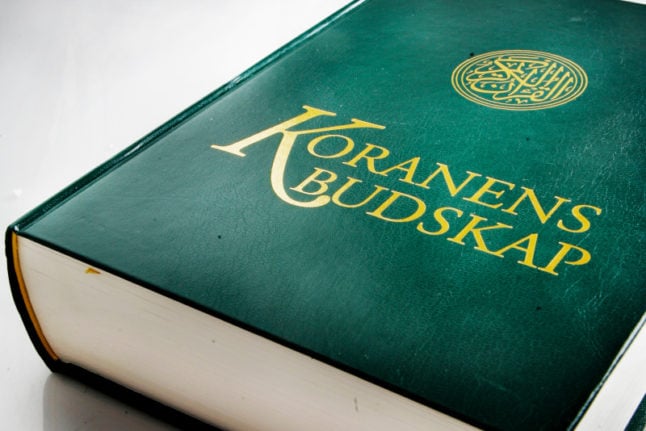The agency has criticised the municipal school for breaching requirements to conduct non-confessional teaching after a report from a parent of one of the children at the school.
“It is stressed that all parents should […] be able send their children to school, safe in the knowledge that their children will not be affected unilaterally in favor of one or other particular viewpoint,” the agency wrote in its report.
According to the parent, the situation arose after the closure of Kuttainen school in the summer of 2009. The pupils, many of whom belong to the small conservative Lutheran revival movement Laestadianism, were then moved to Karesuando.
The parent told the agency that the pupils in her child’s class have since been holding half-hour prayer and psalm-reading meetings during class time, and in the company of a teacher. The school has not informed parents of these activities, the woman claims in her report.
Kiruna municipality confirmed that psalm readings and prayer had occurred, varying from daily, to twice weekly, to weekly depending on the class. Karesuando school claims that the activities were part of statutory religious studies education but has agreed to cease the practice.
Swedish education legislation dictates that the various religions are taught equally as part of the curriculum, although Christianity has traditionally taken greater priority over the other world religions.
“Activities in public schools may not be designed so that students are exposed to influences, such as to get them to embrace a particular religious belief. It is therefore important that the school is diligent when it comes to the teaching of subjects where objectivity is of the utmost importance,” the agency writes.
Laestadianism is a conservative Lutheran revival movement which was started in the middle of the 19th century and is named after the Swedish-Sami botanist and preacher Lars Levi Laestadius.
The deeply conservative faith broke into three branches – The Firstborn Laestadianism, Reawakening, and Conservative Laestadianism – in the beginning of the 20th century and is characterised by Pietistic and Moravian influences.
Laestadians are taught to refrain from rhythmic music, hair dye, alcohol, make-up, wearing ties, TV, birth control, and pre-marital sex, and are the largest revival movement in the Nordic countries. In Sweden they are thought to number 10,000 – mostly found in the north of the country around the Torne Valley.
The group has long been a part of the Church of Sweden but have come into conflict in recent years after the church gave its blessing to same-sex marriage.


 Please whitelist us to continue reading.
Please whitelist us to continue reading.
Member comments